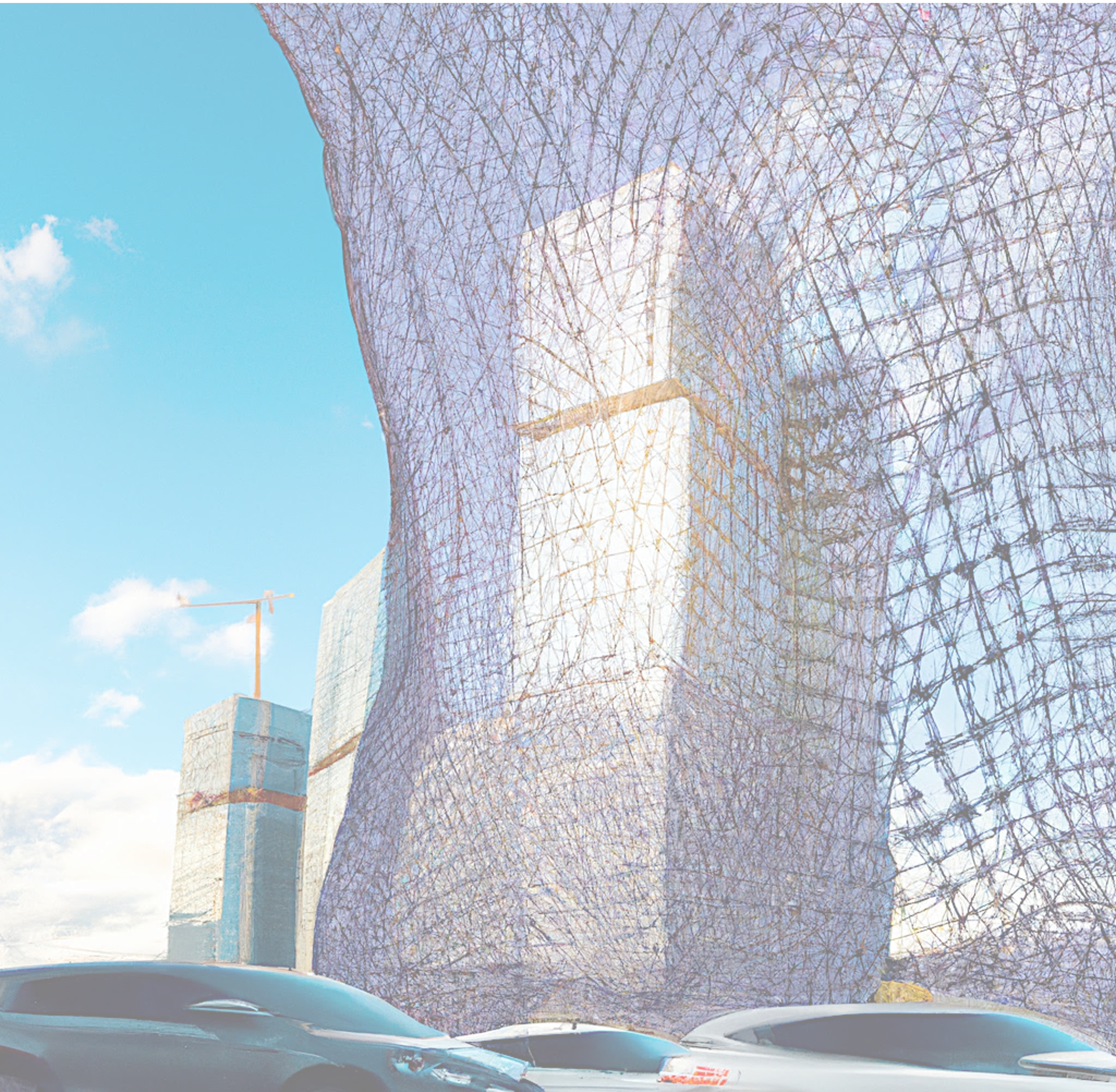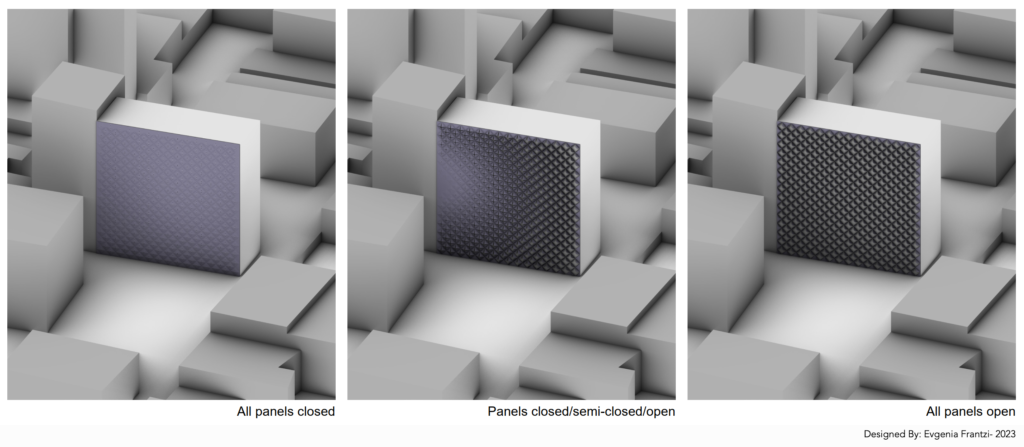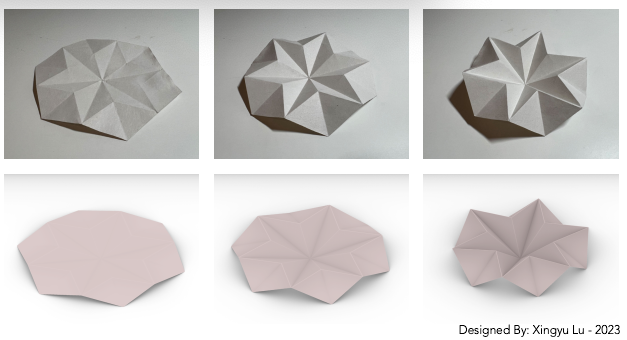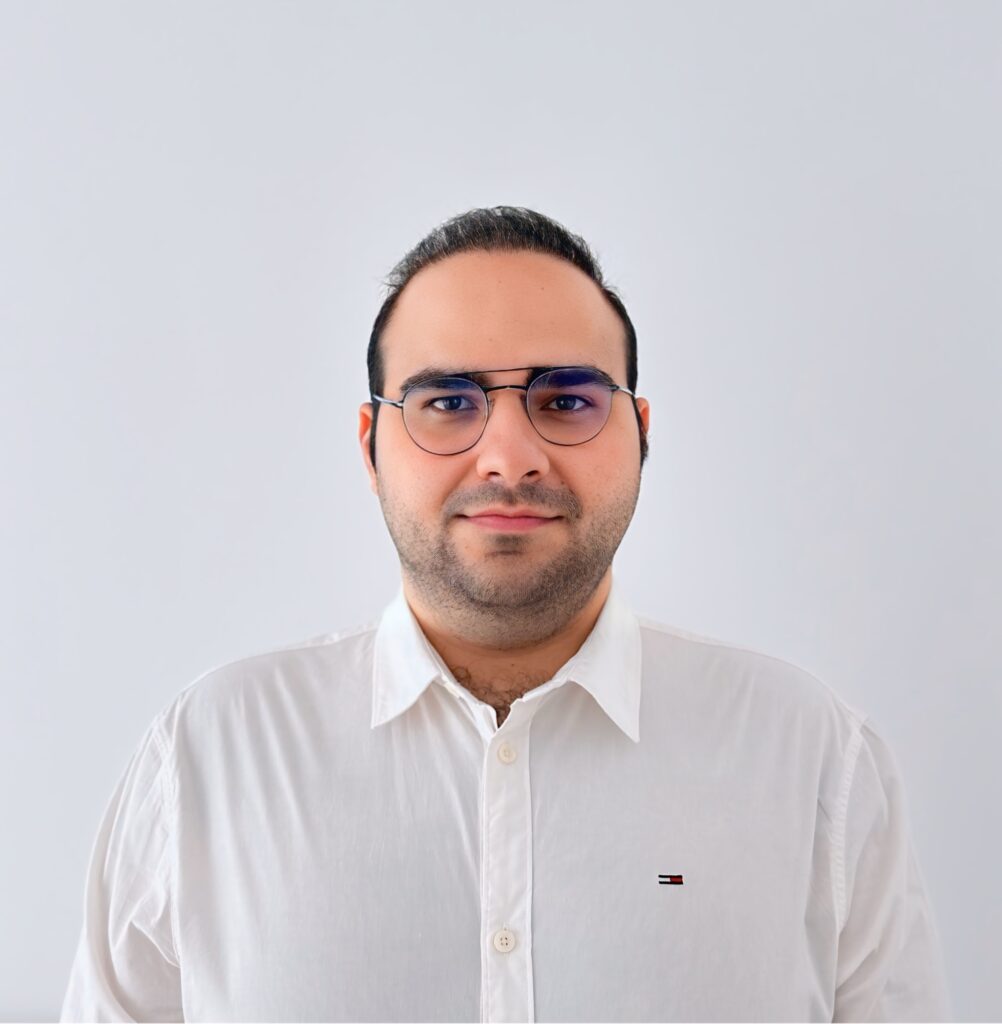Smart Textiles, Smarter Buildings: A Workshop on Form-Finding of Adaptive Textile Systems for Facade Retrofitting
Instructors: Amirhossein Ahmadnia
Dates: 24 – 25 July / 4:00-6:30 EST / 8:30-11:30 EST | 26 – 28 July / 8:30-11:30 EST
Themes: Material Studies / Computational Design
Software: Rhinoceros and Grasshopper / Ladybug Tools / Gh.Python
Number of Students: 60
Workshop registration open until filled

Description:
The increasing urgency of sustainable practices necessitates innovative solutions within the built environment. Existing buildings, often plagued by inadequate energy efficiency, contribute significantly to rising carbon emissions. This workshop explores the potential of textiles and lightweight systems as a method for retrofitting building facades. These materials offer a novel approach to address energy concerns in existing structures.
Textiles, with their inherent flexibility and diverse properties, can be tailored to respond to specific environmental conditions. This tailoring can be based on local geometry or data-driven information to best suit local contexts and needs, providing different functionalities. By strategically utilizing textiles in adaptive retrofit façade systems, we can achieve significant improvements in building energy efficiency.
This workshop delves into this exciting prospect, focusing on the design and development of such systems for managing solar heat gain and loss in existing buildings. Textiles are mostly used as shading systems for windows; however, this workshop will mainly focus on the use of textiles for opaque parts of buildings where their adaptability can reflect or absorb sun radiation as needed. The workshop will start by analyzing existing solutions and will continue with the computational and parametric design of the final system.
The system’s adaptability will be the result of the integration of some mechanical devices, such as sensors and Arduinos, or the use of smart materials, such as shape memory alloys or polymers. Students will be familiar with both methodologies and the ways in which they can integrate them into their designs.

Learning Outcomes:
- Participants will gain a thorough understanding of the potential of textiles and lightweight materials in building systems.
- They will be able to analyze existing building envelopes and identify areas for improvement in energy efficiency.
- Participants will learn about various design principles for creating adaptive retrofit façade systems with textiles.
- They will develop critical skills in material selection, environmental analysis, and system integration for textile-based façades.

Detailed Schedule :
Day 1: 07/24 | 4:00-6:30 / 8:30-11:30 EST | Introduction to the concept of adaptive façades and their role in building sustainability
- Exploring the unique properties and functionalities of textiles in building applications.
- Case studies showcasing successful implementations of textile façades.
- Introduction to Smart Materials and Sensors.
- Introduction to Energy and Radiation Analysis through Grasshopper.
Day 2: 07/25 | 4:00-6:30 / 8:30-11:30 EST | Analyze the energy challenges of existing buildings
- Brainstorming session to identify potential applications of textile retrofitting systems for these buildings.
- Each group will design and prototype a simple adaptive façade system using textiles, addressing the energy challenges identified earlier.
Day 3: 07/26 | 8:30-11:30 EST | Wrap-up and Q&A
Day 4: 07/27 | 8:30-11:30 EST | Wrap-up and Q&A
Day 5: 07/28 | 8:30-11:30 EST | Final Presentation

Amirhossein Ahmadnia:
Amir is a university lecturer and PhD candidate at the TextilesHUB laboratory of Politecnico di Milano. His current PhD research focuses on exploring innovative tensile and lightweight solutions to reduce the thermal loads of residential buildings, driven by climate change concerns. His work centers on adapting the reflectance and absorbance of the opaque parts of residential buildings through the integration of smart and adaptive textile retrofitting.
He has been teaching courses in parametric and computational design, ultra-lightweight building systems, and construction studio in the Master of Science program at Polimi since 2020.


